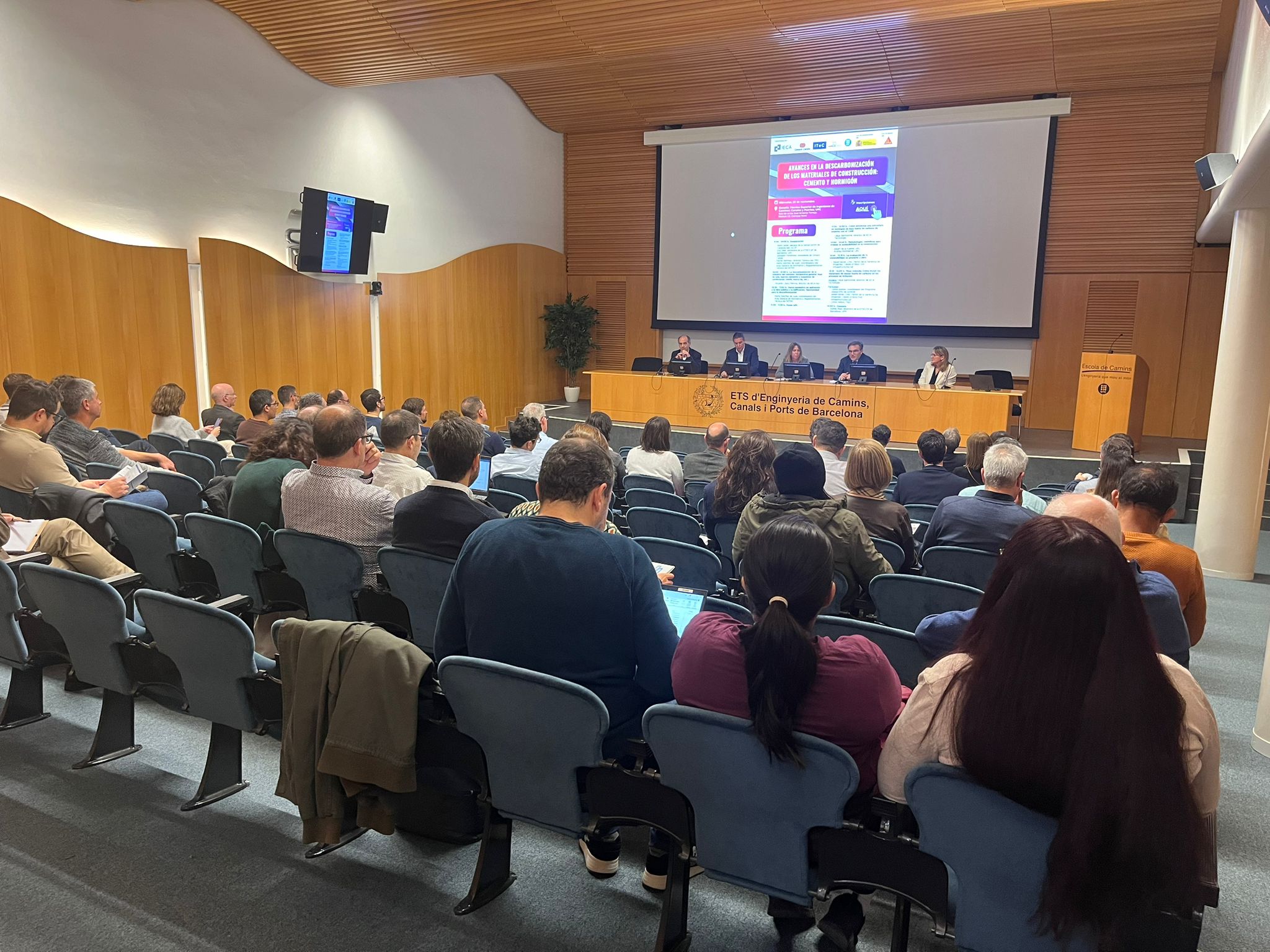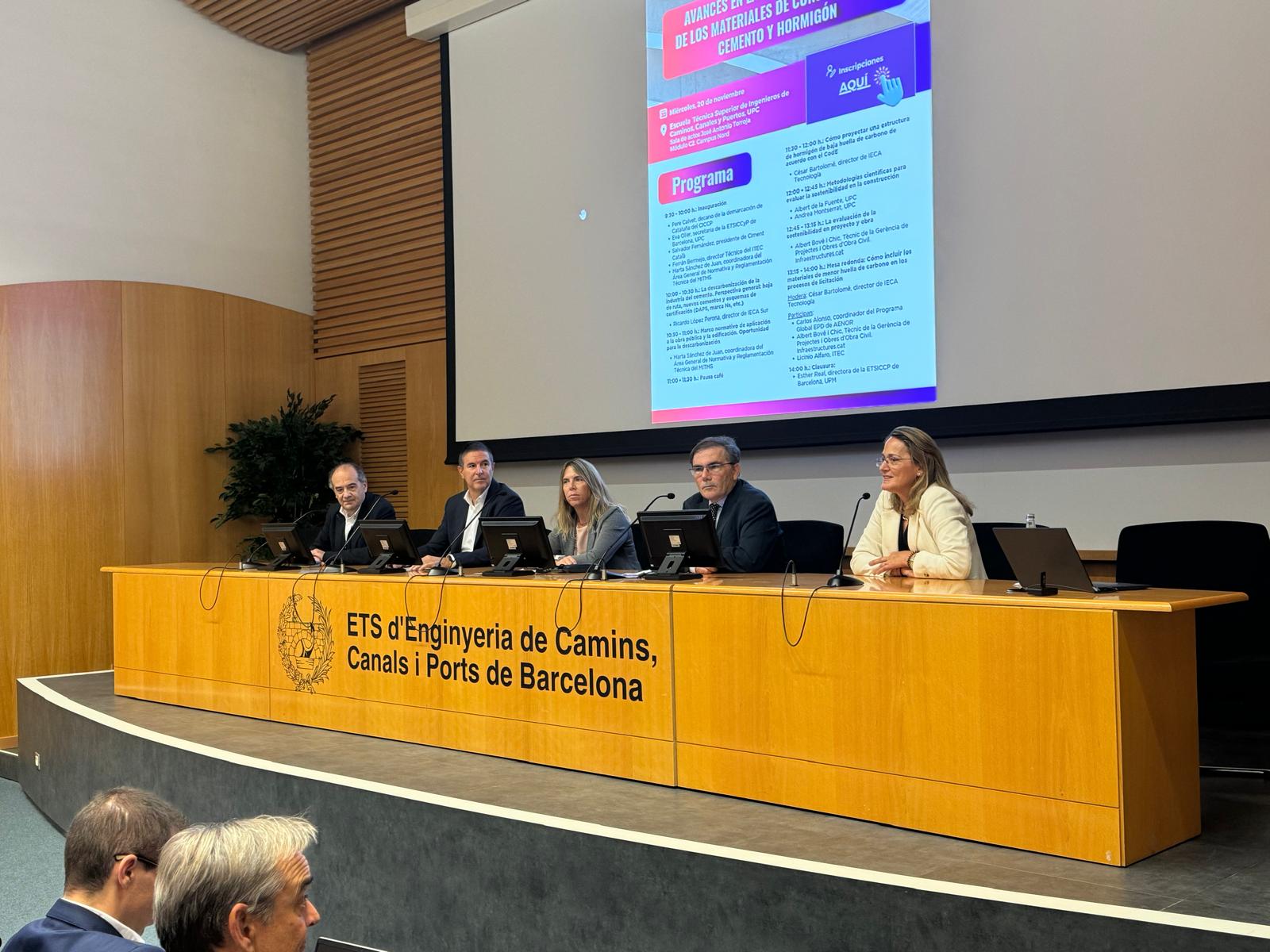- The president of Ciment Català, Salvador Fernández Capo, emphasizes the significant progress made in reducing the cement sector’s carbon footprint and calls for increased support from administrations to promote the use of sustainable materials in construction.
The event, Advances in the Decarbonization of Construction Materials: Cement and Concrete, held at the Escola de Camins of the UPC, highlighted the progress and challenges faced by the cement sector in the fight against climate change. Salvador Fernández Capo, president of the Catalan Cement Manufacturers Association, underscored the commitments made at the European level and called for greater institutional support to include sustainable materials in the construction of housing and infrastructure.
Fernández Capo pointed out that the cement industry has achieved significant advances in reducing its carbon footprint. “Here in Catalonia, we can produce CEM I cement with a carbon footprint 30% lower than the sector’s average ten years ago”, he noted. However, he warned that these advances are not effectively reaching specifiers, builders, and public administrations.
The event, organized by IECA (Spanish Institute of Cement and its Applications), ITeC (Construction Technology Institute), the UPC (Polytechnic University of Catalonia), the College of Civil Engineers, and Ciment Català, was held with the collaboration of the Ministry of Transport and Sustainable Mobility and AENOR (Spanish Association for Standardization and Certification).
During the event, industry experts addressed key topics to achieve climate neutrality. The roundtable and presentations fostered collaboration between the public and private sectors, an essential element for accelerating the transition to a more sustainable construction model. “The administration must contribute to this decarbonization process by facilitating and shortening administrative deadlines and collaborating in financing investments. Without this, the challenge will be impossible”, concluded Salvador Fernández.


